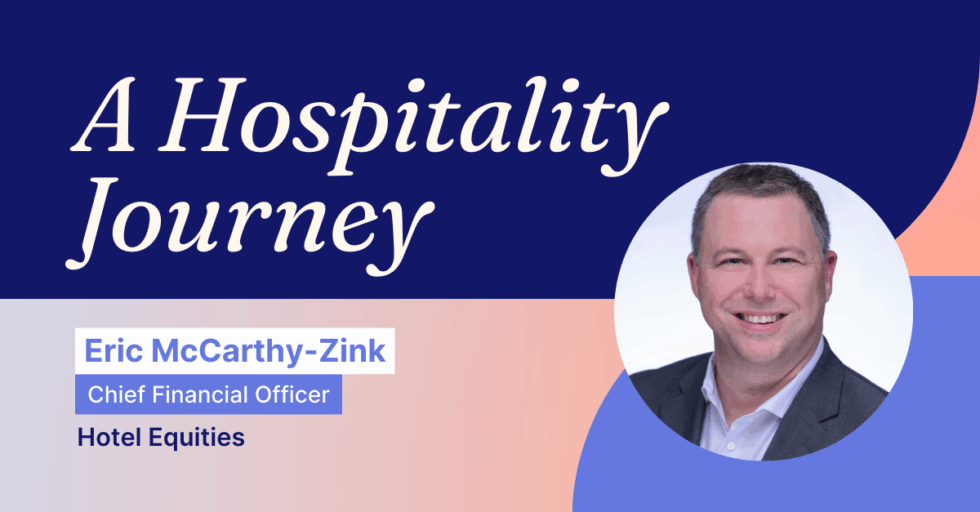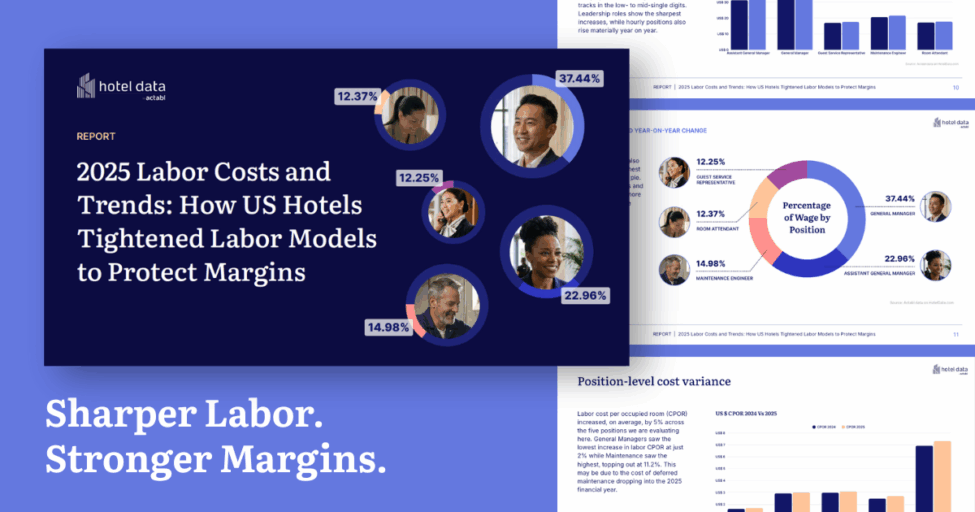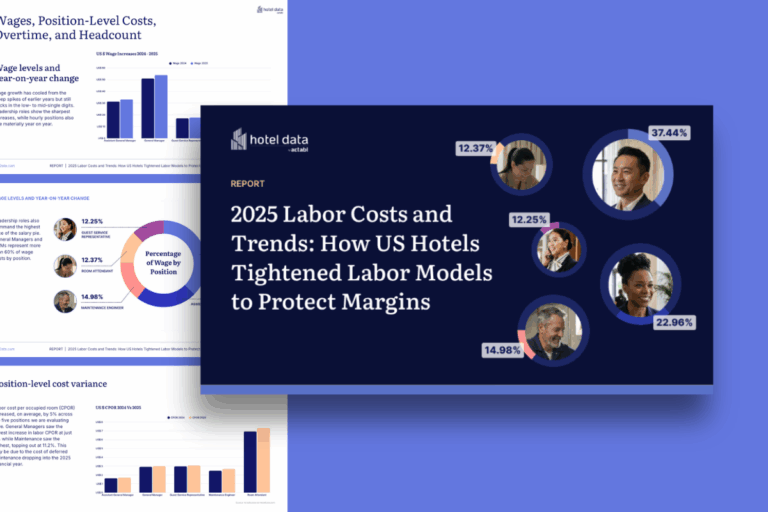
Comprehensive Guide to Effective Hotel CapEx Planning
You are the General Manager of a portfolio of hotels. One morning you learn that a property’s $40,000 fire pump failed – a crucial component for providing 24-hour fire protection. Upon investigation, your engineering team discovers that pumps at three other hotel properties are also nearing the end of their useful lives. You’re now faced with a nightmare of unplanned capital expenditures (CapEx) - not to mention the added labor costs involved.
This guide will set you up for successful hotel CapEx planning, enabling you to make informed decisions and maximize the investment impact on your property.
Let’s Start With: What is Hotel CapEx Planning?
Hotel CapEx planning is the process of forecasting, budgeting, and allocating funds for significant capital expenses, which are investments in the long-term assets of a hotel. These expenses can include renovations, purchasing new equipment, upgrading existing facilities, or undertaking major repairs. Simply put, CapEx planning focuses on the big-ticket items that improve or maintain the hotel's infrastructure and operations over the long term.
Unlike operating expenses (OpEx), which are the daily costs associated with running a hotel—such as salaries, utilities, and cleaning supplies—CapEx investments are more strategic and have a longer-lasting impact. They are aimed at enhancing the hotel's overall value, boosting its market competitiveness, and improving the guest experience. Proper CapEx planning ensures that funds are used efficiently to maximize returns and keep the property in great condition, ultimately leading to increased guest satisfaction and profitability.
Effective Hotel CapEx planning ensures:
- Optimal allocation of resources
- Prolonged asset lifespan
- Enhanced guest satisfaction through well-maintained facilities
6 Steps to Effective Hotel CapEx Planning
Planning for your hotel’s CapEx can feel overwhelming, but with the right steps, it becomes a manageable and even rewarding process. Let’s dive in and make your hotel’s future as bright as it can be!
1: Assess Your Assets
A good CapEx plan includes a thorough evaluation of your property and assets, including everything your property needs to operate efficiently: product improvement plans (PIPs), building systems and exterior projects, brand-required upgrades and more. Your plan should also consider the owner’s investment objectives. For instance, it won’t make sense to waste funds replacing individual pieces of FF&E if your property is scheduled for a complete renovation. Tools like Transcendent can streamline this process by providing detailed asset management insights.
2: Establish Your Budget
Establishing a realistic and effective budget is crucial. For many hotel portfolios, owners simply reserve a percentage of gross revenue – typically 4 percent – for budgeted capital expenditures (even though the International Society of Hotel Consultant’s CapEx study revealed that percentage isn’t nearly enough).
Key considerations when establishing a CapEx budget include:
Asset Age and Condition: Older properties may require more significant investments in maintenance and upgrades, necessitating a higher percentage of revenue allocation.
Market Positioning: Luxury and high-end hotels typically require more frequent and costly updates to meet guest expectations and maintain their brand image.
Technological Advancements: As hotels increasingly adopt new technologies for operations and guest services, budgeting for these innovations becomes essential.
Unexpected Repairs: Unforeseen circumstances, such as natural disasters or equipment failures, can lead to unplanned expenses, highlighting the importance of a contingency reserve in the CapEx budget.
3: Set Priorities on ROI
When planning capital expenditures, it’s crucial to prioritize projects that offer the most significant return on investment (ROI). Evaluating potential projects through the lens of ROI ensures that your hotel invests in improvements that will deliver measurable benefits over time, both in cost savings and guest satisfaction.
Assessing ROI for Different Types of Projects:
Energy Efficiency Upgrades: Projects like upgrading HVAC systems, installing energy-efficient lighting, or implementing water-saving technologies often have a high ROI due to substantial long-term savings on utility bills. For instance, upgrading to a modern HVAC system can reduce energy consumption by up to 20-30%, leading to lower operational costs and a smaller carbon footprint.
Guest Experience Enhancements: Investments in areas that directly impact guest satisfaction, such as lobby renovations, room refurbishments, or enhancing amenities like spas and pools, can significantly boost guest perception and increase occupancy rates. A renovated lobby with a modern design and comfortable seating can make a strong first impression, encouraging repeat visits and positive reviews.
Technological Advancements: Integrating smart technology, such as automated check-in kiosks, mobile room keys, or guest messaging platforms, can streamline operations and improve the guest experience. These innovations often lead to higher guest satisfaction scores and operational efficiency, offering a compelling ROI.
Preventative Maintenance: Investing in preventative maintenance projects, like roof repairs or plumbing upgrades, can prevent costly emergency repairs in the future. By addressing potential issues early, hotels can avoid downtime and ensure consistent service quality, protecting their bottom line.
Balancing Short-Term and Long-Term Gains
While some projects, like lobby renovations, might offer immediate visible benefits and quick returns through increased guest satisfaction, others, such as energy-efficient upgrades, provide long-term savings that accumulate over years. A balanced approach ensures a mix of short-term wins and sustainable long-term investments.
Incorporating Guest Feedback and Market Trends
Guest feedback and market trends should also influence project prioritization. If multiple guests mention outdated rooms in reviews, prioritizing room renovations can improve ratings and attract more bookings. Similarly, staying ahead of market trends, like adopting eco-friendly initiatives, can position the hotel as a leader in sustainability, appealing to environmentally conscious travelers.
By systematically ranking projects based on ROI, hotels can allocate their CapEx budget more effectively, ensuring that each dollar spent contributes to the property's growth and long-term success.
4: Leverage Data for Decision-Making
Leverage Data for Decision-Making
The most strategic way to budget for CapEx is to use data. Transcendent simplifies the budget creation process by standardizing and centralizing relevant data across your portfolio – allowing you to auto-generate each property’s CapEx line items 10+ years into the future. You can establish a rolling forecast for capital replacement based on each asset’s date-in-service, expected useful life, maintenance histories, condition and performance. Longer-term projections for major expenses such as roofs, elevators and HVAC systems can incorporate an inflation rate, ensuring you’re prepared for years when additional capital is required.
5: Plan for Long Term
Capital expenditure (CapEx) planning isn’t just about addressing immediate needs or preparing for the next fiscal year. It’s about creating a comprehensive roadmap that guides your hotel's growth and development over the long term. By developing a 3-5 year CapEx plan, hotel owners and managers can align their investments with the property's strategic goals, ensuring that every dollar spent contributes to the hotel's sustained success.
6: Use Capital Planning Software
Capital planning software like Transcendent simplifies the budgeting and planning process. With features like asset management and predictive maintenance, you can make smarter, faster decisions.
The Role of Technology in Hotel CapEx Planning
Modern technology has transformed CapEx planning, making it more efficient and data-driven. Hotel asset management software empowers hoteliers to:
- Track asset performance and maintenance schedules
- Forecast future expenses with predictive analytics
- Prioritize projects based on real-time data
How Transcendent Can Help with Hotel CapEx Planning
Transcendent is more than just hotel asset management software—it’s a strategic partner in hotel CapEx planning. With Transcendent, you can:
- Gain complete visibility into your assets across multiple properties
- Optimize maintenance schedules to avoid costly downtime
- Make data-driven decisions for smarter CapEx investments
Investing in Transcendent ensures that every asset in your hotel is meticulously managed, maximizing its lifespan and profitability.
Effective Hotel CapEx Planning is Foundational for Success
Effective hotel CapEx planning is the foundation of a successful hotel operation. By assessing current assets, prioritizing ROI, leveraging technology, and embracing preventative maintenance, hotels can thrive in today’s challenging economic environment.
Ready to revolutionize your hotel CapEx planning? Discover how Transcendent can help you unlock the full potential of your assets and streamline your hotel’s operations.





